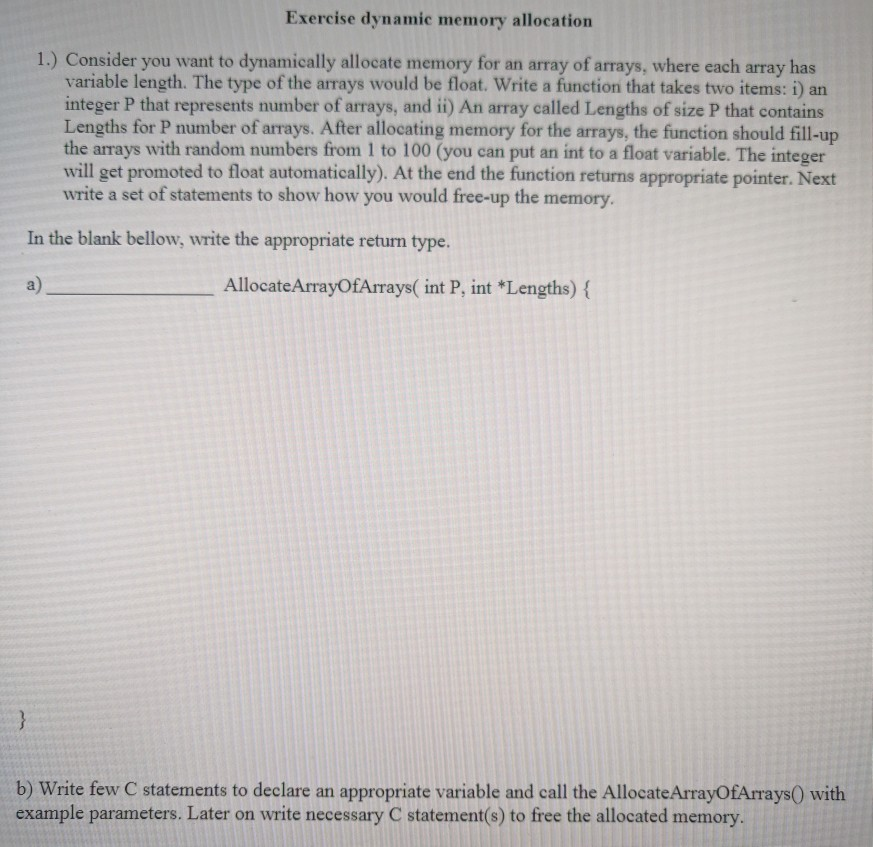Answered step by step
Verified Expert Solution
Question
1 Approved Answer
General requirement is to solve by hand and try to solve without using a compiler. Exercise dynamic memory allocation 1.) Consider you want to dynamically

General requirement is to solve by hand and try to solve without using a compiler.
Exercise dynamic memory allocation 1.) Consider you want to dynamically allocate memory for an array of arrays, where each array has variable length. The type of the arrays would be float. Write a function that takes two items: i) an integer P that represents number of arrays, and ii) An array called Lengths of size P that contains Lengths for P number of arrays. After allocating memory for the arrays, the function should fill-up the arrays with random numbers from 1 to 100 (you can put an int to a float variable. The integer will get promoted to float automatically). At the end the function returns appropriate pointer. Next write a set of statements to show how you would free-up the memory. In the blank bellow, write the appropriate return type. AllocateArrayOfArrays( int P, int *Lengths) { b) Write few C statements to declare an appropriate variable and call the AllocateArrayOfArrays() with example parameters. Later on write necessary C statement(s) to free the allocated memoryStep by Step Solution
There are 3 Steps involved in it
Step: 1

Get Instant Access to Expert-Tailored Solutions
See step-by-step solutions with expert insights and AI powered tools for academic success
Step: 2

Step: 3

Ace Your Homework with AI
Get the answers you need in no time with our AI-driven, step-by-step assistance
Get Started


